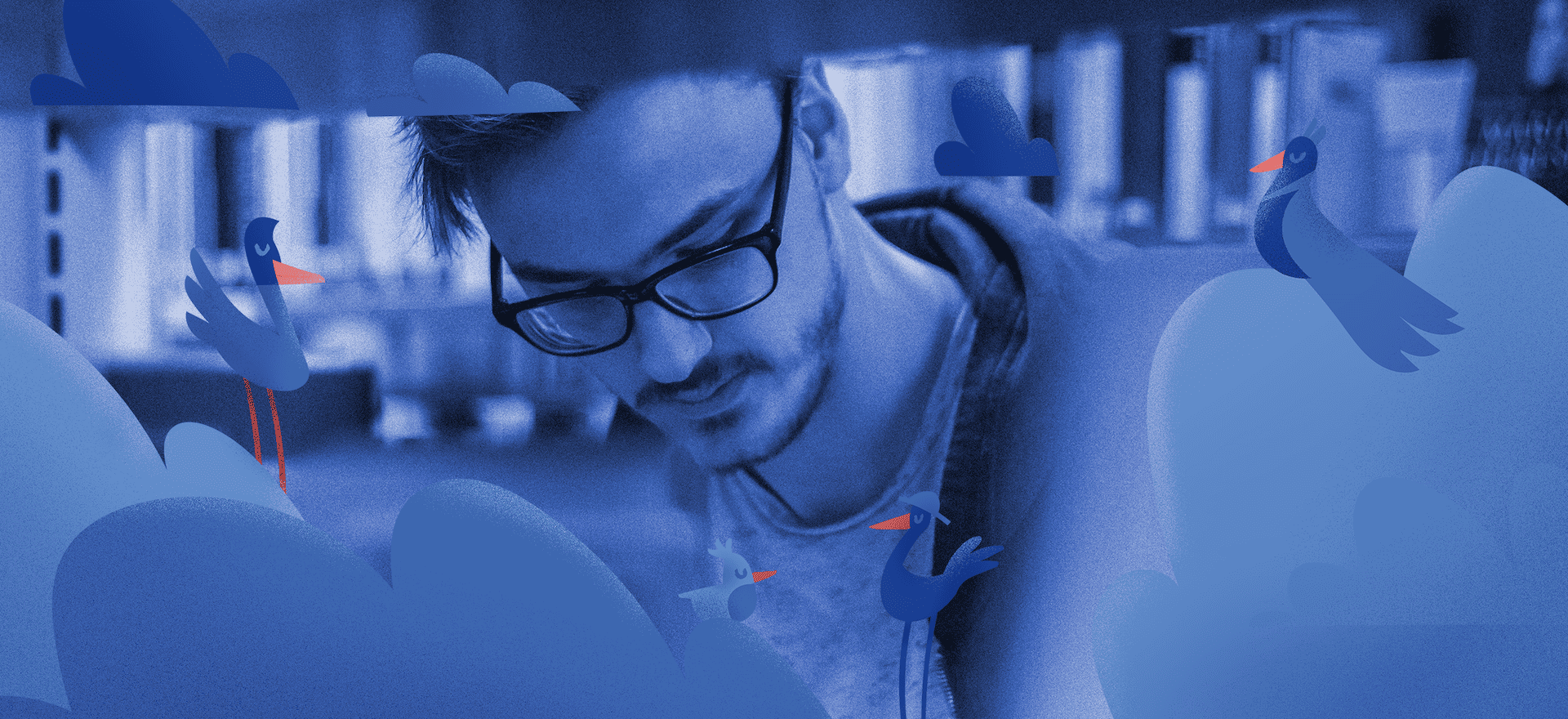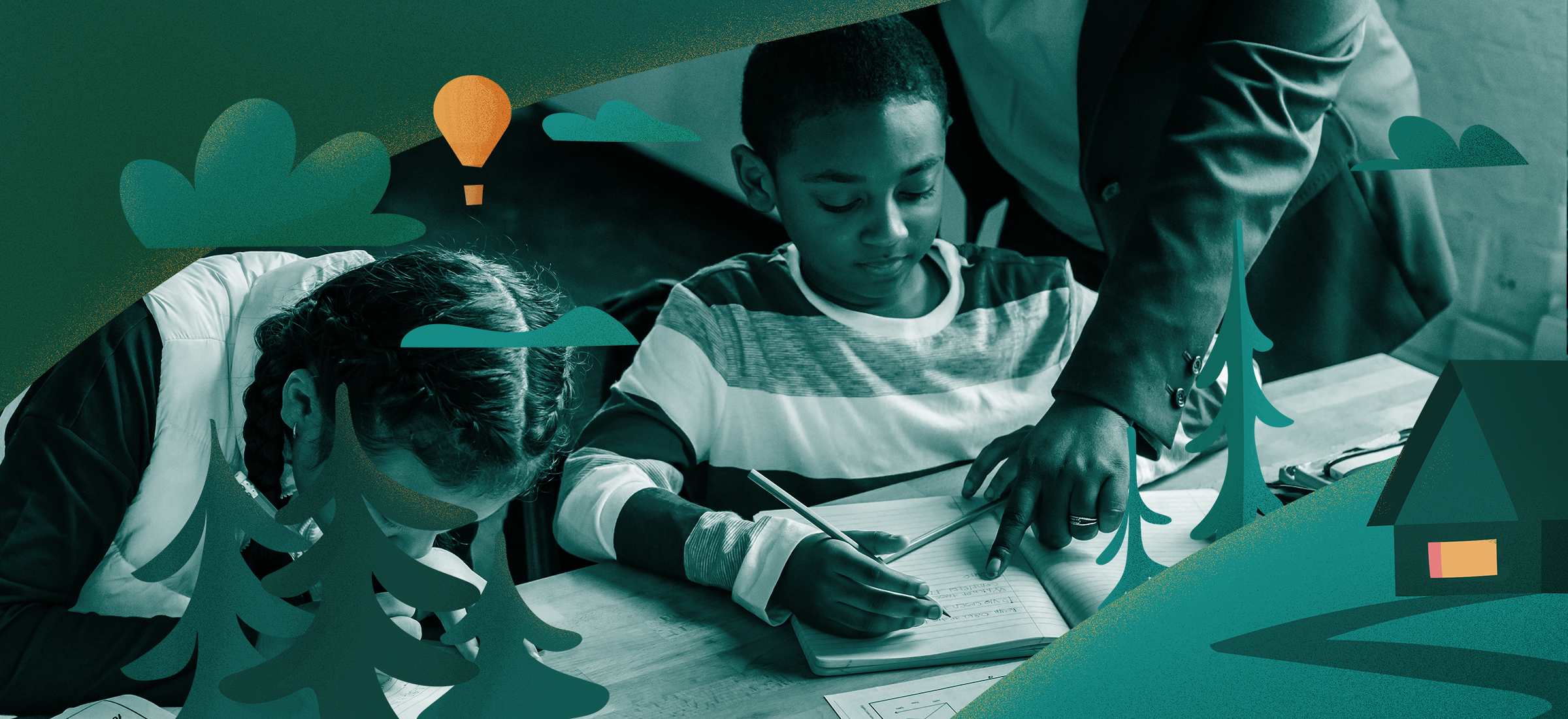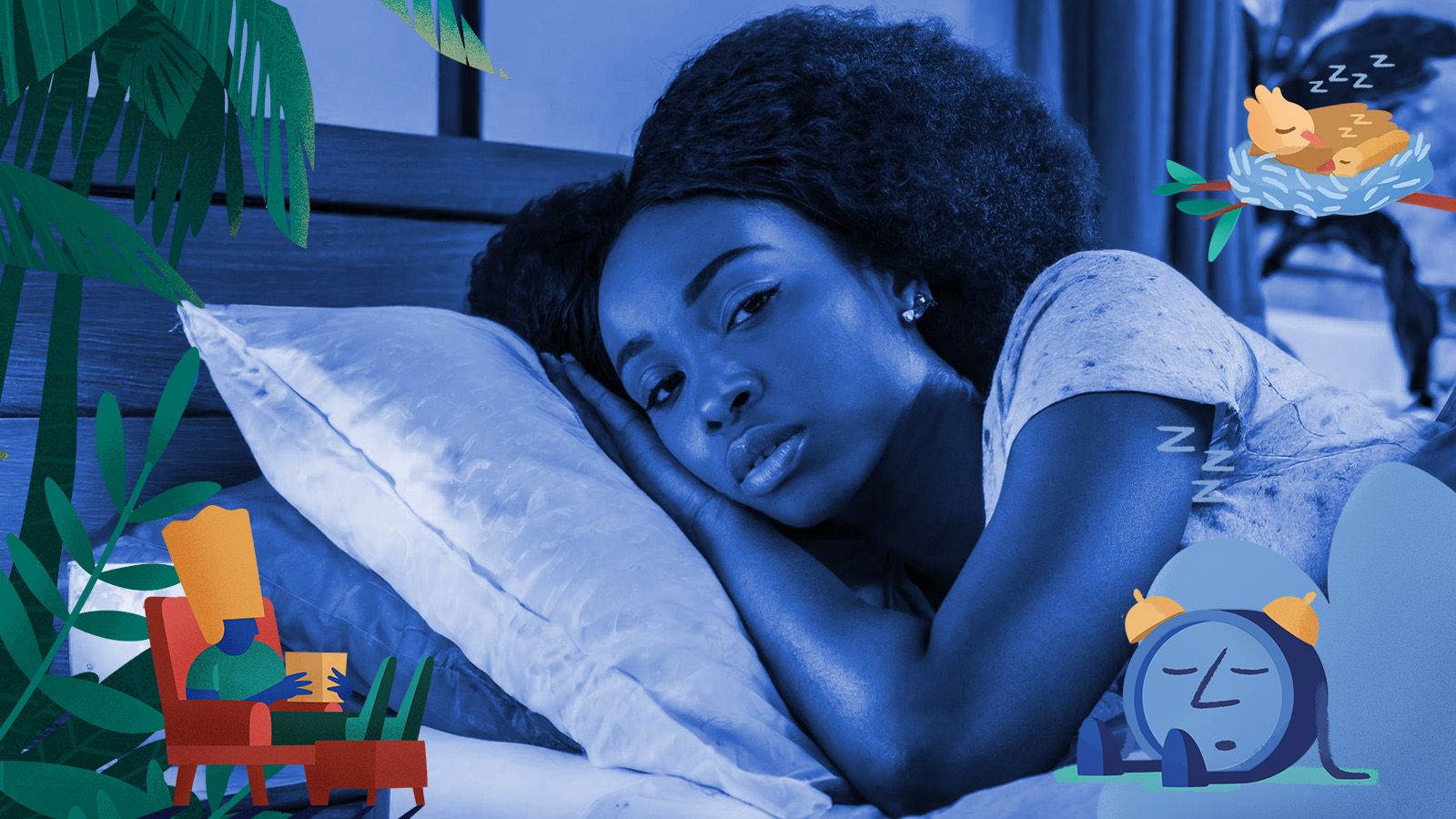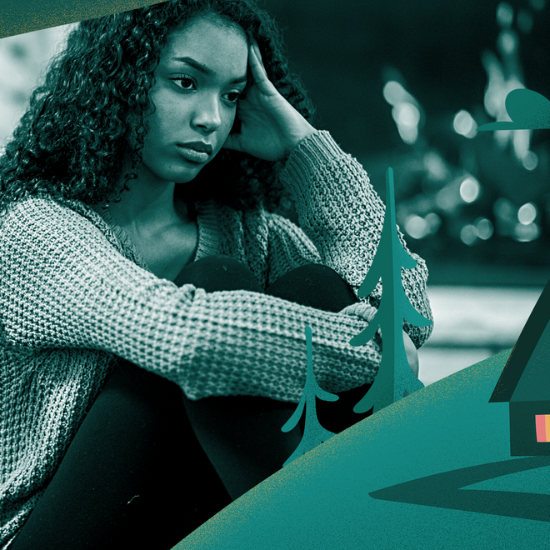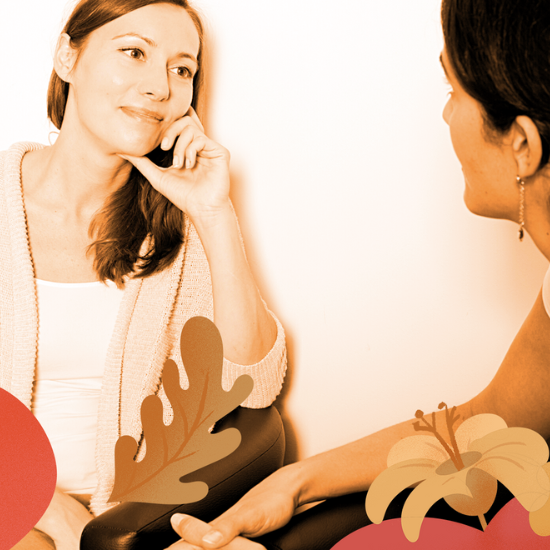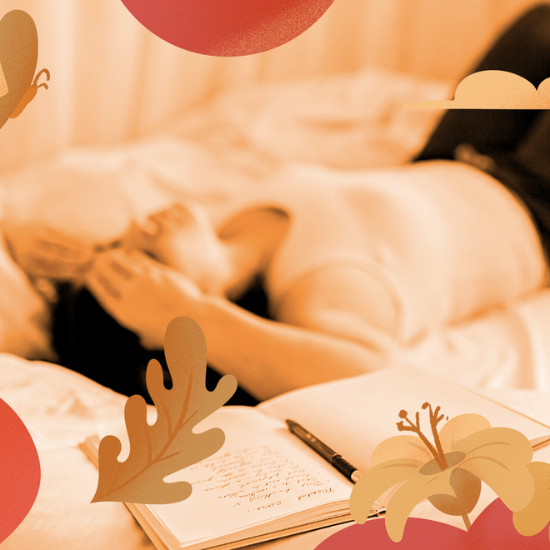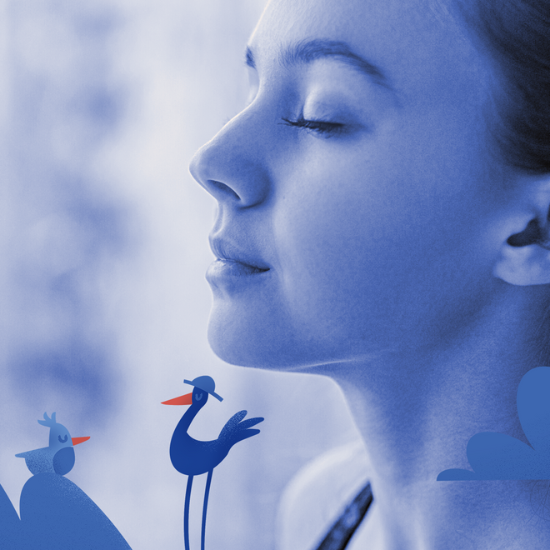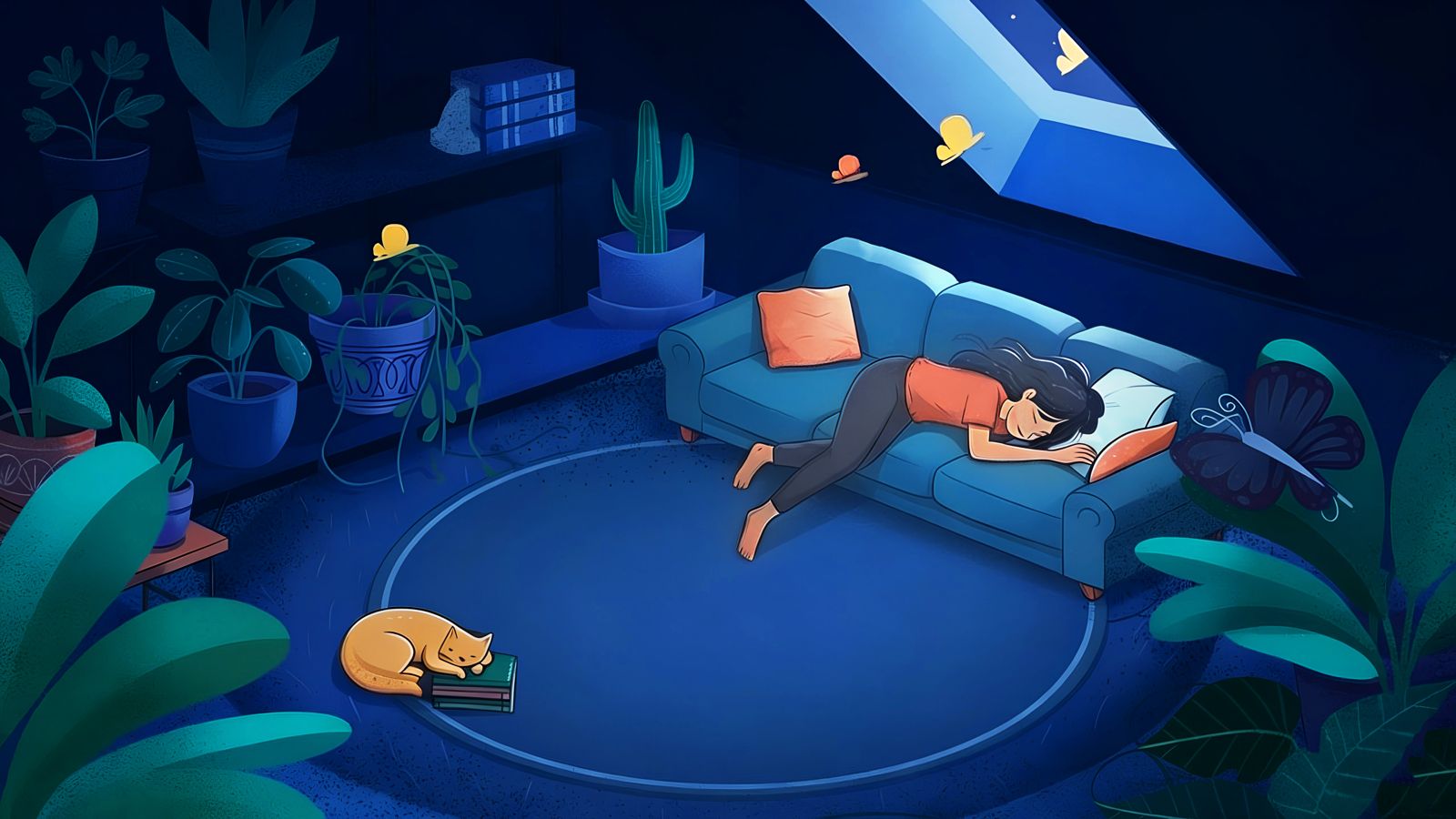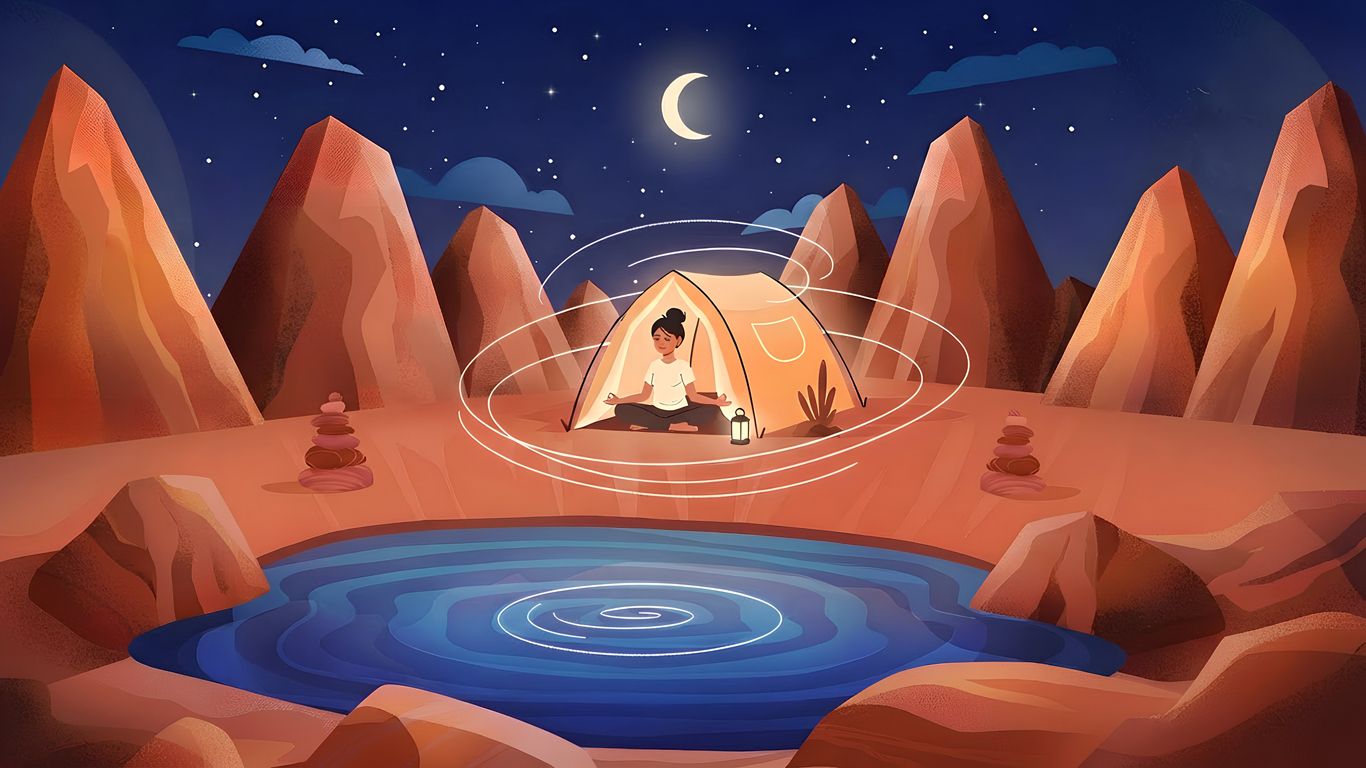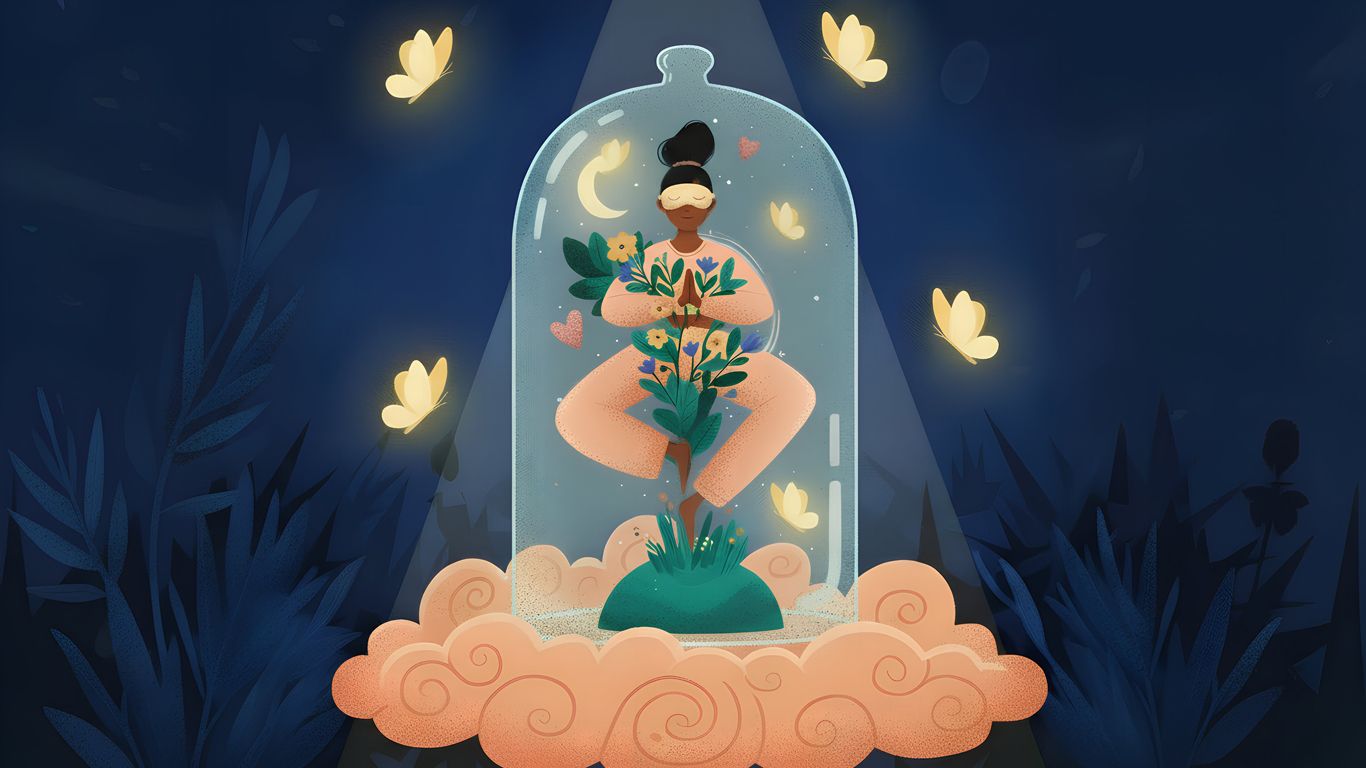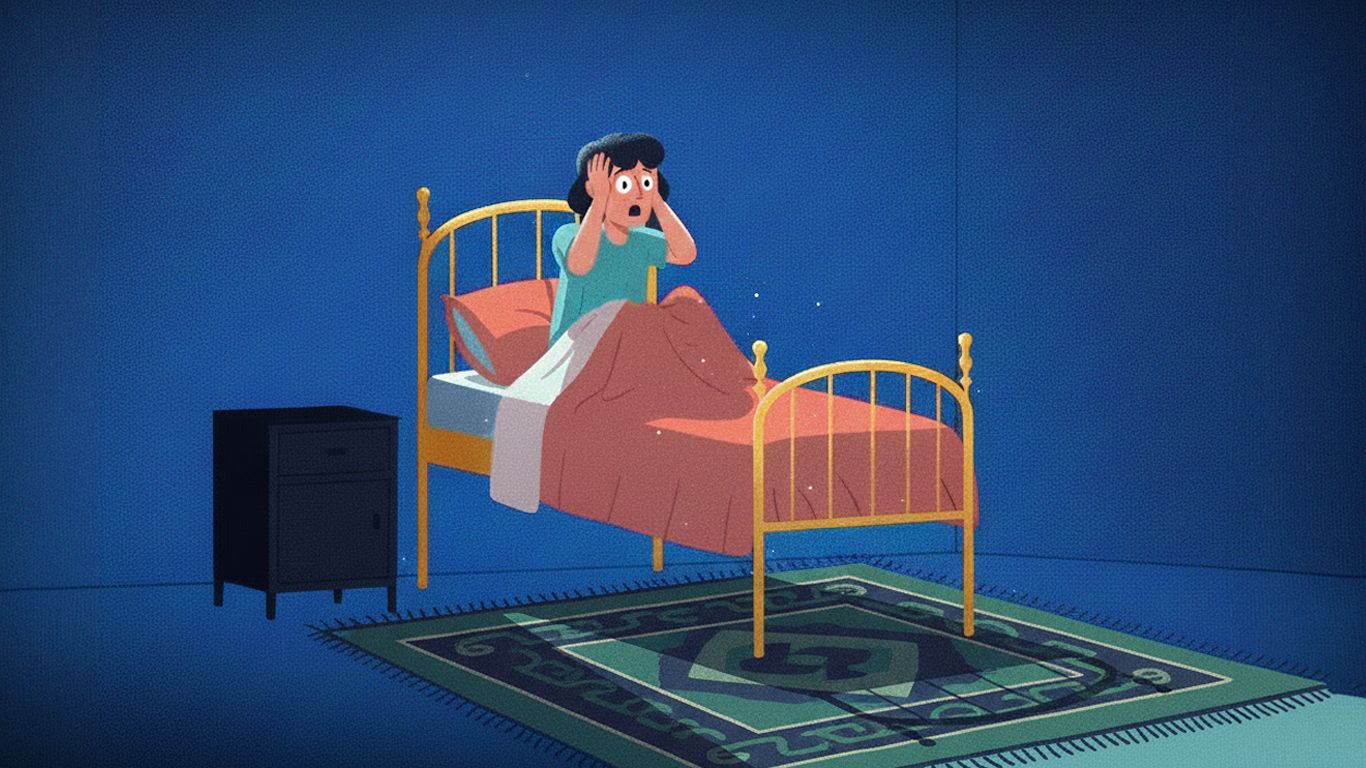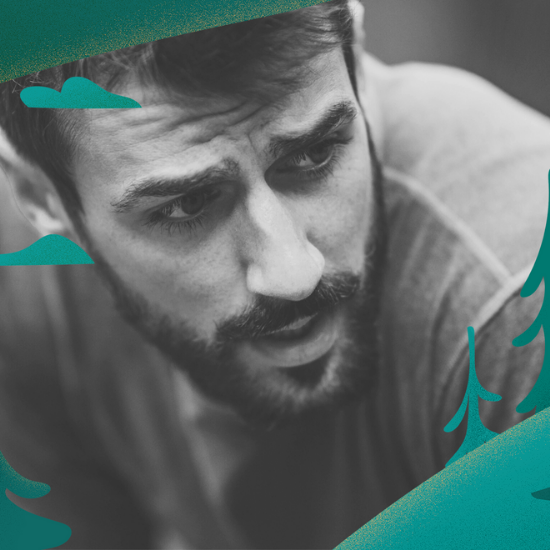
Breathing Exercises for When Anxiety Leaves You Breathless
Everyone will experience anxiety at some point in their life. Mild anxiety can stem from everyday situations such as work stress, worrying about finances, or if a family member is ill.
When anxiety becomes more extreme, like with an anxiety disorder, this can affect breathing. On the flip side, the way you breathe can impact feelings of anxiety. Not breathing correctly while feeling anxious may lead to a panic attack or feelings of fatigue.
Experiencing rapid breathing or difficulty breathing can be terrifying. But, it's a common symptom for anxiety sufferers and usually doesn't mean anything serious is wrong.
However, it's important to understand why your shortness of breath is happening. This article will explore the causes of breathlessness with anxiety disorders and how you can start breathing a little easier again.
Does Anxiety Cause Shortness of Breath?
The symptoms of anxiety can vary for each person. However, shortness of breath is common and can make a person feel even more anxious. Not being able to take a full breath can make someone think they have a medical issue, such as a heart problem.
If you experience shortness of breath, it’s important to consult a medical professional. They will be able to determine whether this is down to anxiety or a physical cause such as a heart or lung problem.
Common Symptoms of Anxiety Disorders
Anxiety disorders are common, with statistics showing that 3.1% of the US population suffer from generalized anxiety disorder (GAD). An anxiety attack can cause a range of physical and mental symptoms.
A few of the most common symptoms of anxiety include:
- Chest pain or tightness
- Difficulty breathing
- Rapid breathing
- Stomach muscles tightening
- Muscle tension
- Heart palpitations
- Sweating
- A suffocating or choking sensation
- Dry mouth
- Confusion
- Dizziness
- Difficulty speaking
- Poor concentration
- Nausea
- Shaking or trembling
- Feeling like something bad is going to happen
Alongside these symptoms, you may feel on edge, jittery, frightened and like you're not in control.
Anxiety episodes can even lead to periods of high blood pressure. If these start to happen often, like daily, this can lead to damaged blood vessels and a weakened heart and kidneys.
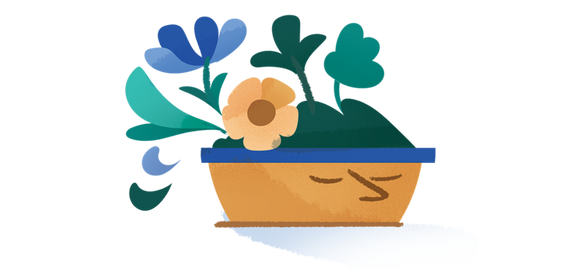

Why Are Anxiety and Shortness of Breath Linked?
Anxiety and panic attacks are linked to fear. When you're scared or worried about something, the body responds by preparing to defend itself against a threat. This encourages the brain to trigger the fight-or-flight response. The heart starts to beat faster to push more blood around, so the muscles are ready for action.
Other physical responses include the breathing pattern increasing to get more oxygen to the muscles. When this happens, you may feel shortness of breath, which can lead to more anxiety.
If you frequently experience shortness of breath, it's important to see a doctor who will rule out any serious causes such as heart or lung conditions.
It's normal to feel anxious occasionally, but if it's starting to affect your daily life, you could have an anxiety disorder or a panic disorder.
According to research, an estimated 2-3% of US citizens suffer from a panic disorder each year.
If you're diagnosed with anxiety or a panic disorder, there are a variety of breathing exercises and relaxation techniques that can help.
You might even be offered alternative treatment options such as medication or therapy with a mental health professional.
What Causes Shortness of Breath from Anxiety?
There are many contributing factors to shortness of breath from anxiety. These include:
The Stress Response
As previously mentioned, the fight or flight response is triggered when we face a threat. Frequent anxiety triggers this response which can lead to a racing heart, tight muscles, and a higher demand for oxygen in the body.
The combination of these symptoms can lead to breathlessness and the feeling like you can't catch your breath.
Hyperstimulation
When the stress response is triggered occasionally, the body will recover quite quickly. If it's triggered frequently, the body may stay in a state of hyperstimulation.
This state keeps the stress response symptoms active even when you're not in a stressful situation. Over time, this can lead to prolonged periods of shortness of breath.
Holding Your Breath
Without even realizing it, some anxious people hold their breath in stressful situations. This can cause shortness of breath and other symptoms related to anxiety.
Anxious Feelings About Shortness of Breath
Once you experience shortness of breath caused by anxiety, you may then become anxious about losing your breath again, which sets you on a vicious cycle. You might:
- Have anxiety, which activates the stress response
- This causes anxiety and breathing problems
- You feel scared and start to feel more anxious
- Increased anxiety activates the stress response again
- The stress response causes more shortness of breath
While this will be uncomfortable and frightening, remember that anxiety will not stop you from getting sufficient air altogether.
Breathing is an automatic bodily function and while you may feel out of breath, you'll always take in enough oxygen to breathe and stay alive.
How to Tell if Your Shortness of Breath is Caused by Anxiety
When experiencing shortness of breath, it can be hard to tell whether it**'**s part of your anxiety symptoms or something else. Breathing difficulties are a symptom of many different health issues.
While shortness of breath is a common symptom of anxiety, not everyone with anxiety will find it hard to breathe.
To know for sure if you have generalized anxiety disorder (GAD) a doctor will assess you using information from the Diagnostic and Statistical Manual of Mental Disorders (DSM).
If you suffer from panic attacks or a panic disorder, shortness of breath is also one of the common physical symptoms. Your doctor will use this information to reach a diagnosis for you.
To discover why you're experiencing shortness of breath, your doctor will first rule out other causes such as asthma and heart or lung problems.


Best Ways to Treat Anxiety or Panic Attack Symptoms
There are a variety of methods to treat anxiety symptoms and panic disorders so you can start to live a normal life again. It's important to work with a doctor to find the best treatment plan for you.
They may suggest one or a combination of the following:
Medication
To relieve shortness of breath caused by anxiety, doctors may prescribe medication such as:
- Diazepam (Valium)
- Alprazolam (Xanax)
- Lorazepam (Ativan)
- Clonazepam (Klonopin)
While these medications help relieve anxiety quickly, it's important to remember that using them can lead to physical dependence. This means they shouldn't be used for the long term.
Cognitive Behavioral Therapy (CBT)
CBT is an effective treatment for those with anxiety. Regular sessions help to alter how you think in situations that trigger anxiety symptoms.
CBT treatment teaches you about how the fear you feel is irrational and trains you how to better cope.
Psychodynamic Psychotherapy
This is often used as a treatment for anxiety and teaches you how to accept and reflect on negative feelings and how to create new, positive responses.
Guided Imagery
Guided imagery for relieving anxiety symptoms involves the use of visualization to reach a relaxed state. You are encouraged to close your eyes and imagine the sights and sounds of a relaxing place.
Progressive Muscle Relaxation
Progressive muscle relaxation is a relaxation technique commonly used to relieve the physical symptoms of anxiety. It can even help to relieve insomnia and certain types of pain.
During this simple practice, you tense one muscle group and then release the tension from that muscle before moving on to the next.
One study found that progressive muscle relaxation reduced anxiety and breathlessness symptoms in those with chronic obstructive pulmonary disease (COPD).
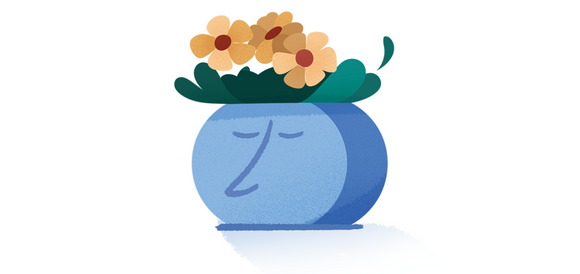

Breathing Techniques to Reduce Anxiety Symptoms
Diaphragmatic Breathing
Diaphragmatic breathing is also known as belly breathing or abdominal breathing. The American Institute of Stress says that 20 – 30 minutes of diaphragmatic breathing will help to reduce anxiety and stress.
Sit or lie down in a comfortable space. Follow these steps to perform diaphragmatic breathing:
- Put one hand on the belly below the rib cage
- Breathe in through your nose and feel your belly rise
- Exhale the air slowly through pursed lips and feel your belly fall
Start practicing belly breathing for a few minutes when feeling anxious and build up to 5 or 10 minutes.
Box Breathing
Box breathing is otherwise known as four-square breathing. It’s a type of paced breathing where you need to:
- Inhale for a count of 4
- Hold your breath for a count of 4
- Exhale for a count of 4
- Repeat the pattern again
4-7-8 Breathing
4-7-8 breathing is also known as relaxing breath. It helps to naturally tranquilize the nervous system, which is extremely helpful when experiencing anxiousness. To get started, sit with your back straight. Next:
- Position the tip of your tongue to the roof of your mouth, just behind your teeth
- Breath out through your mouth making a "whooshing" sound
- Count to 4 while breathing in through your nose
- Hold the air in for a count of 7
- Exhale through your mouth to a count of 8 and repeat the process
Lion's Breath
The lion’s breath exercise is helpful to relax the face and jaw muscles, reduce stress, and enhance cardiovascular function. To do lion's breath, sit comfortably, place your hands on your knees, and lean forward slightly, then:
- Spread your fingers wide
- Breathe in through your nose
- Open your mouth and stick out your tongue
- Exhale with force, making a "ha" sound
- Return to normal breathing for a few moments
- Repeat the lion's breath exercise 7 times
Mindful Breathing
A past study showed mindful breathing to be effective at reducing the symptoms of anxiety. Mindfulnessmeditation helps you focus on the now, slow down racing thoughts, and release negativity. To start mindfulness meditation, you need to:
- Sit comfortably
- Keep your back straight but allow a natural curvature in your spine
- Bring attention to your breathing
- If your mind wanders, acknowledge your thoughts, and return your attention back to the breath
- Be kind to yourself without judgment or expectation
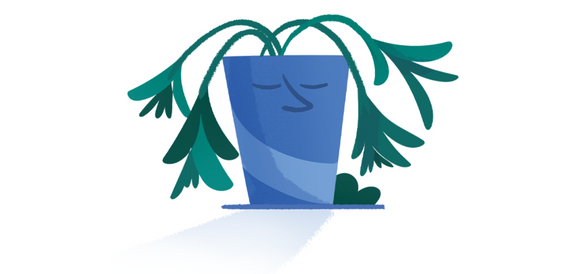

How to Prevent Shortness of Breath from Anxiety
The best way to prevent shortness of breath from anxiety is to learn your triggers and practice techniques to deal with them in a better way.
Preparation is the key to overcoming many things in life and the same goes for anxiety. A good place to start is by keeping a thought log.
Here, you write down the thoughts you have when a wave of anxiety or panic overtakes you, leading to breathlessness. This can help you pinpoint triggers, alongside allowing you to reflect on your anxiety when you feel a lot calmer.
These notes will also help your doctor understand what's happening to you. In your anxiety thought log you should detail:
- The date and time
- Any triggers (like a person, place, thought, or thing)
- What symptoms you had, such as shortness of breath, racing heart, trembling, etc.
- What thoughts you had during this episode (e.g. what will happen to you)
- How definitely do you believe this thought from 1-100
For example, while experiencing shortness of breath, you may believe that you're going to pass out. At the moment, you may believe this 100%.
However, after a period of reflection when you feel better, you can now see that this is unlikely to happen and may only score it 10%. Recording and reviewing your thoughts will help reduce anxious episodes in the future.
Another way to prevent future breathlessness episodes due to anxiety is by addressing the causes of your anxiety and incorporating healthy stress management practices into your daily routine.
This means making time for relaxation techniques, cooking healthy food, regular exercise, meeting with friends and loved ones, and practicing good sleep hygiene.
Conclusion
If you experience shortness of breath with chest pain or vomiting, seek medical attention immediately. For general breathlessness with other anxiety symptoms, talk with your healthcare provider.
It is a treatable symptom and your doctor can work with you to find out the cause and devise the best treatment plan for you.
To help deal with anxiety, reduce stress, and calm the mind, try the guided meditations and soothing sounds on the BetterSleep app. New users can try out the app for free for 7 days.

